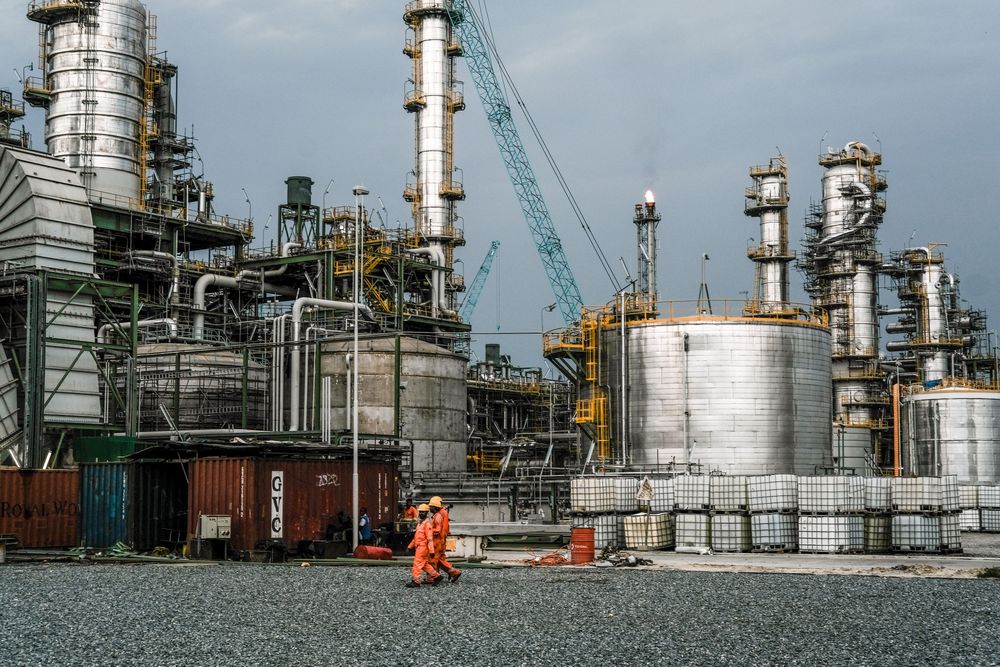
Production is set to start with diesel and jet fuel while petrol refining is scheduled to commence on November 30.
The highly anticipated Dangote refinery, capable of processing 650,000 barrels per day, is set to receive its initial crude oil shipment within the next two weeks. Production of diesel and jet fuel is expected to commence in October, with a projected output of 370,000 barrels per day.
Devakumar Edwin, the Group Executive Director overseeing the $19.5 billion project, confirmed the refinery's readiness to receive crude oil. The facility will launch in phases, starting with the production of diesel and jet fuel in October, followed by a phased ramp-up to 650,000 barrels per day by November 30. It is expected that about half of the production will be petrol, addressing Nigeria's key fuel demand.
S&P Global analysts predict that the refinery may not reach full operating capacity until mid-2025, with the possibility of further delays. Nevertheless, it is anticipated that Nigerian petrol production will surpass imports until the 2040s due to the refinery.
The refinery was designed to process Nigerian light sweet crude, but due to temporary constraints from the state-owned Nigerian National Petroleum Company Limited (NNPC), which is a shareholder in the project, Dangote will initially purchase crude oil from trading houses. The refinery is expected to run exclusively on Nigerian crude by November.
Crude oil purchases will be conducted in US dollars, not the Nigerian naira, as some reports suggested, due to the refinery's location in a free zone on the outskirts of Lagos. However, NNPC will supply some crude at discounted prices due to its equity stake.
The refinery has the flexibility to process various African crudes, except for heavy Angolan grades, and can even handle Middle Eastern Arab Light and US light tight oil if global conditions permit.
Dangote's primary goal is to make Nigeria self-sufficient in refined products and export surplus. Excess petrol will be exported to other African markets, the US, and South America, albeit in relatively small volumes. Jet fuel will be exported to Europe, while diesel will be sold in sub-Saharan Africa.
To combat the issue of theft and vandalism of pipelines in Nigeria, Dangote has constructed pipelines connecting the refinery to single buoy moorings in its custom-built port, capable of handling very large and ultra-large vessels.
Despite encountering numerous delays and challenges since discussions began in 2013, Dangote Group initiated physical construction five years ago, leading to the establishment of what will become the world's largest single-train refinery. Edwin noted that these delays provided opportunities to increase the refinery's capacity and improve design efficiencies.
Dangote Group views the refinery as a significant benefit to Nigeria, as it will ensure a reliable supply of environmentally-friendly refined products and contribute substantial foreign exchange to the country. Additionally, it will help alleviate the fuel supply crisis in import-dependent West Africa, which has experienced a thriving illicit gasoline market due to price fluctuations caused by Nigeria's fuel subsidy.
Copyright © ENTREPRENEURSHIP DEVELOPMENT INSTITUTE 2015. All rights reserved.
Powered by: C.B.N